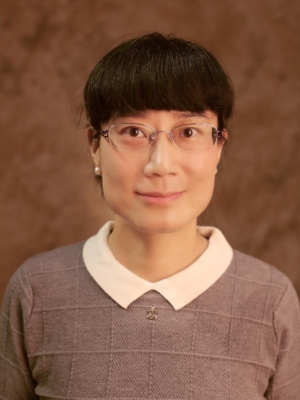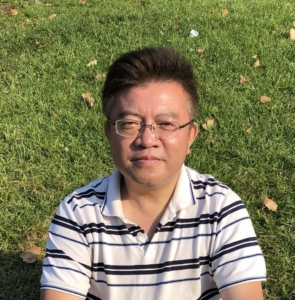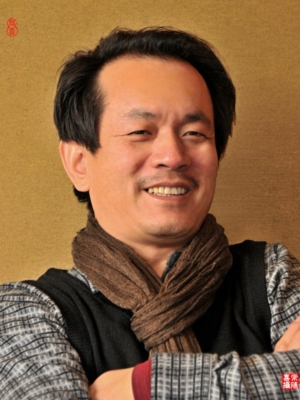City and Its Underground Worker / Blue Boy Smuggling Birds’ Nests up the Trees
[translated poetry]
City and Its Underground Worker
Serving as an underground worker just like a gopher
I engage in the everyday work of crossing tunnels under the ground
Or digging out burrows deeper than before
Every day I clean the sludge, sewage, gravels and mixed garbage
Stuck in the underground passages as if clearing bowel obstruction
Wearing a headlamp continuously lighting up the path
On which I must venture forward or retreat when chased by death
Every day I experience the earth, the city and the darkness in its depths
The subterranean tunnels’ wide openness resembling a giant’s throat
Is like another world and its secrets
Like a bird loving to fly alone I keep watching
The secrets not only so myriad but also monotonous
Never able to be put on the table
And only enjoyable by a gopher
The endless yet fatuous quietude of the tunnels
And the underworld’s cast iron pipe networks as outrageously tortuous as roots
Require somnambulant willpower to contest with
Just like a gopher
I have been used to all of it
This sweet and eventful darkness
Blue Boy Smuggling Birds’ Nests up the Trees
The blue kid has a body as crystally bluish as the ocean
The ocean’s dark blue lit by a beacon
Grayish blue completely invaded by sunshine and thick fogs
Blue belly gashed by giant plowing ships
And dark chest effervescing big bubbles and then filled up
Again and again by the horizon and sorrowful stars
Are all the blue of the blue kid
As staunch and steadfast as sea rocks
As capricious and vagarious as the ocean
And hardly controllable by a base person or devil
Afar in the ocean quietly enduring the pain of the mundane world
The blue kid alone is furtively transporting nests on trees
Such curious and dangerous work piles of endangered eggs
He must be as cool as a cucumber like a senior carrier
And remain daring and scrupulous in venturing his life
Those nests he will mount among the stars
Place on the moon and its fragrant tea olive 1
And put inside the universe with nebulas gliding like bird flocks
The blue kid secretly transporting nests towards the stars
The planner and designer of the trees of stars
Wants all the birds, planes and spacecraft
To take off at the blue lake where he dives while holding his breath
He wants doves, birds and even blue peacocks with their showy clumsiness
To fly hither and thither in flocks and musters
In the thick dense shade of the trees of the stars
In and out the superficially changed nests he has stealthily transported to there
1 In traditional Chinese folklore, it says that there is a cinnamon tree on the moon. Since last imperial China, many scholars have mistaken the cinnamon tree as Osmanthus fragrans, sweet olive, or fragrant tea olive. Some contemporary scholars translate the tree as “the katsura tree.”
![]()
城市和它的地下工作者
做一个地老鼠一样的地下工作者
我每天的工作就是在地下穿越地道
或者把地道挖得更深
每天清理肠梗阻一样清理着卡住地下通道的
污泥浊水 碎石料和混合型垃圾
用额头上的探照灯反复地照亮必须冒险前行
或者被死亡追赶必须退回去的路线
每天经历大地、城市和它深处的黑暗
地下隧道巨人喉咙似的空旷
仿佛另外一个世界和它的秘密
我像一只喜欢单飞的鸟守望着
这秘密如此之多而又如此单调
却又永远不摆上桌面
只配一只地老鼠享用
地下隧道悠长而昏庸的寂静
地下世界根一样蛮横盘曲的铸铁管网
需要梦游般的意志与之较量
像一只地老鼠一样
我已经习惯了这一切
这甜蜜而屡遭变故的黑暗
蓝孩子在树上偷运鸟巢
蓝孩子 像大海一样通体透蓝
大海被灯塔照耀的暗蓝
大海饱经阳光和浓雾侵袭的灰蓝
大海被巨轮像耕耘一样划开的蓝肚膛
然后又被地平线和悲伤的星辰
一遍又一遍填平的泛着巨大泡沫的黑肚膛
都是蓝孩子的蓝 像海岩一样坚贞不渝
也像大海一样变幻莫测的蓝
难以被小人和恶魔掌控的蓝
而在大海的远方 隐忍着尘世之痛
蓝孩子在独自一人偷运树上的鸟巢
这是一项好奇而危险的工作 垒垒危卵
他必须像一个老牌搬运工一样镇定自若
他必须胆大心细 将生死置之度外
那些鸟巢 他要把它们安放在星辰之中
安放在月亮和它的桂树上
安放在星云像鸟群一样飞翔的
宇宙之中
在树上向星辰之中偷运鸟巢的蓝孩子
星辰之树的规划者和设计师
他要鸟、飞机和航天器
从他憋着一口气潜水的蓝色湖泊起飞
他要鸽子、鸟群甚至蓝孔雀华丽的笨拙
从星辰之树的浓荫中
从他偷运而来的那些换汤不换药的鸟巢中
成群结队 飞来飞去
Translator’s Statement
These two poems are from Yan An’s latest book, A Naturalist’s Manor, which is published by China Youth Publishing Group, and which won the “Ten Best Poetry Books in China” award in 2018. Yan An’s poems are highly experimental, unconventional, and unique according to the standards and traditions of Chinese culture, considering their aesthetic value, contents, philosophical denotations, and meanings. As a pioneer in modern westernized Chinese poetry, Yan An has completely transformed Chinese readers’ concepts and understanding of poetry through his unique views about the universe, life, society, and people. His way of thinking is unusual and unconventional. His poems do not contain any of the Chinese elements traditionally and commonly depicted by other Chinese poets and even if they do, they are addressed from unique perspectives. Therefore, they can transcend the boundaries between nations and cultures, reaching for a wider audience across the world. In each of his poems, behind his boundless imagination, there lies a story and An’s sentiments and understandings of life, people, society, and the universe.
His language is intense and abstract. Just like his other poems, these poems are rich in literary devices, such as similes, metaphors, personifications, and parallelisms. These literary devices have well served their purpose in the Chinese versions. Nevertheless, in their English versions, some transcreation techniques have to be exploited to retain the same or similar effect.
To put this into perspective, several different kinds of restructuring techniques are used. For example, in the first stanza of the poem “City and Its Underground Worker,” the order of the fourth and fifth lines is reversed due to the differences in the word order between the Chinese and English languages. For another example, in the same stanza, the phrase “the path” is restructured from the seventh line to the sixth line and the two verb phrases to modify “the path” in the source text are restructured into an attributive clause, i.e., the seventh line in the target text.
In this example, the addition technique and restructuring technique are combined together. In particular, a relative expression, “on which I,” is added to the translation. Sometimes, the addition technique is used alone in the transcreation process, as in the case of “I” in the eighth line of the first stanza. In this way, the logic of this line is clearer than the source text.
During the transcreation process, the technique of changing grammar categories is also used. For example, in the eleventh line of the first stanza of the poem “City and Its Underground Worker,” the gerund “keeping watching” is translated to the predicate “keep watching,” and the predicative “like a bird that loves to fly alone” is translated to an adverbial “Like a bird that loves to fly alone.” The emphasis of this sentence is shifted from “like a bird that loves to fly alone” to “keep watching.” In this way, the transcreation is smarter and more iambic and logical.
All in all, we have attempted to bring something new and foreign into English to enrich it, by helping English poets and readers unleash their creativity, imagination, inspiration, and by bridging or integrating American and Chinese ways of thinking and culture. Also, we have endeavored to create some novel transcreation techniques to help with any future translation of Yan An’s poems.
Chen Du has a master’s degree in biophysics from Roswell Park Cancer Institute, the State University of New York at Buffalo, and another from the Chinese Academy of Sciences. She revised more than eight chapters of the Chinese translation of the biography of Helen Snow, Helen Foster Snow—An American Woman in Revolutionary China. In the United States, her translations have appeared or are forthcoming in Columbia Journal, Lunch Ticket, Pilgrimage, Sinking Water Review, Anomaly, etc. Three poems co-translated by her and Xisheng Chen are a finalist in The Gabo Prize for Literature in Translation & Multilingual Texts. Find her online at ofsea.com.
Xisheng Chen, a Chinese American, is an ESL grammarian, lexicologist, linguist, translator, and educator. His educational background includes: a BA and an MA from Fudan University, Shanghai, China, and a Mandarin healthcare interpreter certificate from the City College of San Francisco, CA, USA. His working history includes: lecturer at Jiangnan University, Wuxi, China, and adjunct professor at the departments of English and social sciences of Trine University (formerly Tri-State University), Angola, IN. As a translator for over three decades, he has published a lot of translations in various fields in newspapers and journals in China and abroad.
Yan An is one of the most famous poets in contemporary China, author of fourteen full-length poetry collections, including his most famous poetry collection Rock Arrangement, which has won him the sixth Lu Xun Literary Prize, one of China’s top four literary prizes. He is the winner of various national awards and prizes. He is also the Vice President of Shaanxi Writers Association, the head and executive editor-in-chief of the literary journal Yan River, one of the oldest and most famous literary journals in Northwestern China. These poems are from Yan An’s book A Naturalist’s Manor which will be published by Chax Press.







